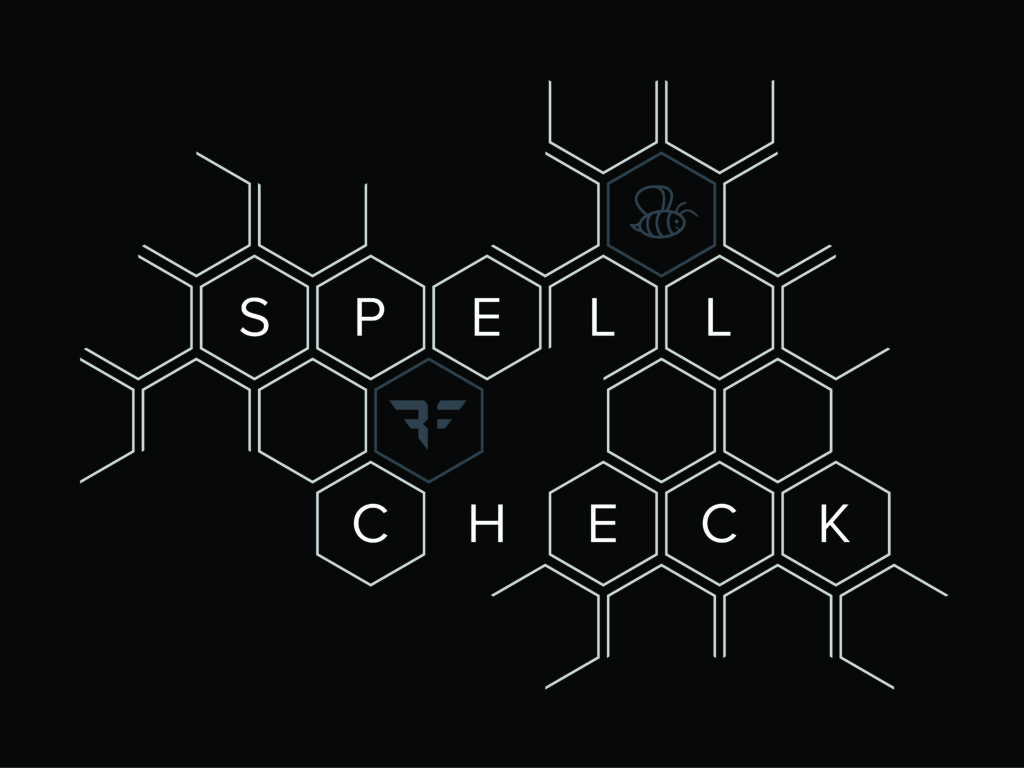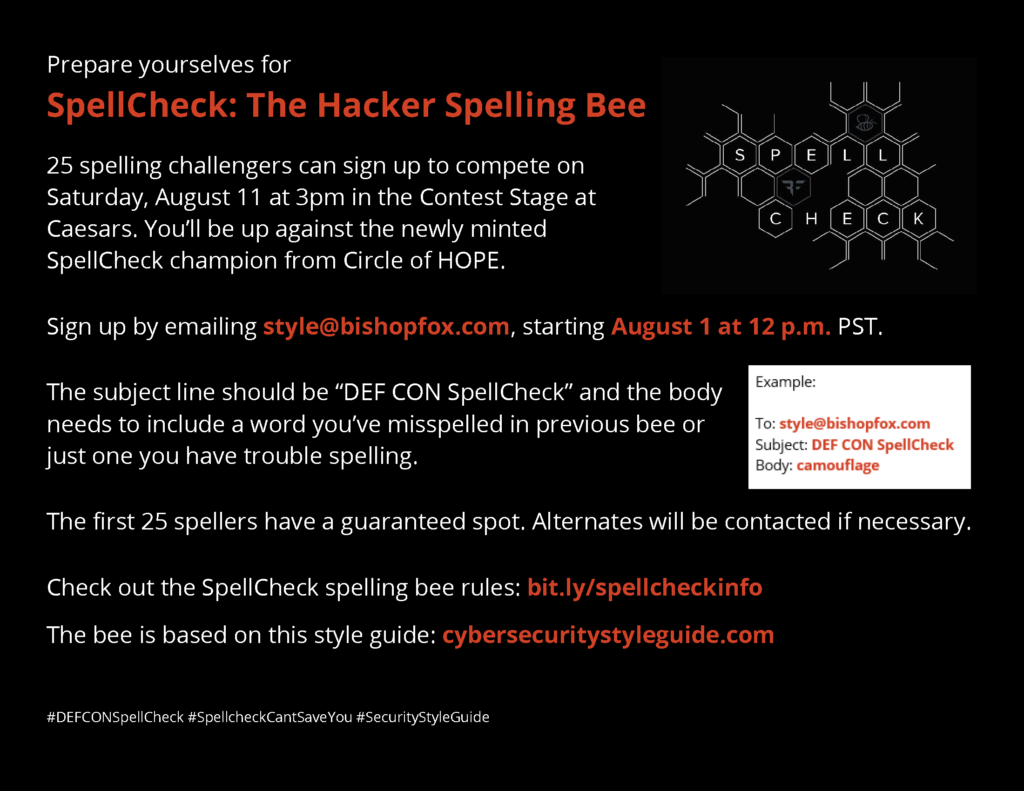- The official spelling of each term for this bee comes directly from the most recent version of the Bishop Fox Cybersecurity Style Guide (bit.ly/securitywords). The terms in the bee may have variant spellings or homophones in the wide world, but if it’s not the one from the guide, it is considered incorrect for this bee.
- Spellers should repeat the term back to the announcer before spelling so the announcer can make sure the speller heard it correctly. The announcer will then help clarify the pronunciation if something was misheard.
- Spellers can ask to hear the term repeated. They can also ask for the part of speech, additional information about the term, or an example sentence. Spellers can ask for this information as many times as they’d like. If there are pronunciation variants, the announcer will mention that and say the variants up top.
- If spellers do not ask clarifying questions and there is a homophone for that term (Example: Black Hat vs. black hat) and they spell the wrong one, that is considered incorrect for this bee.
- Spellers will have a few minutes to begin spelling their term. The timer will start when they hear the term for the first time. If a speller has not begun spelling when the timer ends, they are out.
- Spellers cannot change their answers once they begin. They can restart if it helps to regain momentum, but they can’t change the letters and capitalization that they’ve already said out loud (like Scripps rules).
- If it helps, spellers may mime writing their term in the air, trace it on their shirt with a finger, trace it on their arm, type it in the air, or text it in the air.
- The first three rounds will all be completely lowercase terms. All terms in Round 4 will contain at least one capital letter. After Round 4, capitalized terms will be mixed in at random for the remainder of the bee.
- In rounds with capitalization, spellers should assume that letters are automatically lowercased, which means capitalization needs to be called out for each capital letter as if they are using the Shift key, not Caps Lock. (Example: capital G, capital D, capital P, capital R.) If it makes spellers more comfortable, they can also be explicit about lowercase letters (Example: capital M, lowercase I, lowercase T, capital M.) Spellers can either say “capital X” or “uppercase X.”
- If spellers are incorrect, the announcer will ding a little bell and the audience will go “awwwwwwww.” If at least one speller has already spelled successfully in that round, the incorrect speller should then go join the crowd.
- The winner will correctly spell one more term than everyone else. (Example: Six spellers remain in a round. If only one speller is successful, they win.) If two spellers are left at the beginning of a round, and only one successfully spells in that round, the successful speller is the winner. (Not like Scripps rules) If two or more spellers survive a round, the bee will continue for another round.
- If ALL remaining spellers are eliminated in a single round, they will all return for the next round.
- If the last few spellers are amazingly difficult to eliminate, the announcer may introduce variant rules to the bee.
- All spellers will get to keep their speller IDs as participation trophies. The winner gets a unique prize in addition to that.
SpellCheck at HOPE:
Friday July 20 at 11:59 PM in the Booth Ballroom on the 18th floor
Sign up in person at the Info Desk, starting at 10am on Friday.
https://hope.net/schedule.html
https://www.bishopfox.com/news/2018/06/the-circle-of-hope-spellcheck-the-hacker-spelling-bee/
SpellCheck at DEF CON:
Saturday August 11 at 3:00 PM in the Contest Stage at Caesars on the Emperor’s floor
Sign up in advance via email starting August 1st through style@bishopfox.com.
https://www.defcon.org/html/defcon-26/dc-26-contests-events.html

